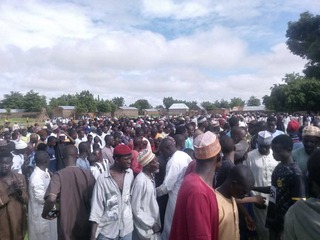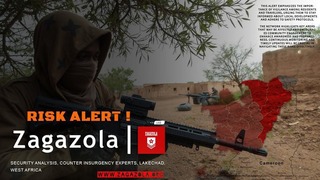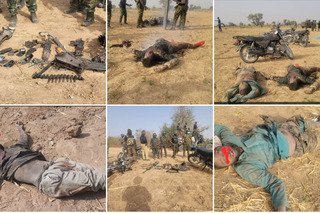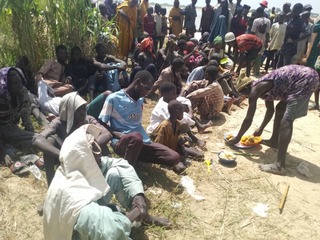Nigeria rejects religious persecution claims, says security challenges are criminal not faith-based
By: Zagazola Makama
The Federal Government has dismissed allegations of religious persecution in Nigeria, insisting that recent security challenges are criminal and not motivated by religious intolerance.
Permanent Secretary, Ministry of Foreign Affairs, Amb. Dunoma Umar Ahmed, stated this while briefing the Diplomatic Corps at Tafawa Balewa House, Abuja.
Ahmed said Nigeria remains a secular state where both Christianity and Islam enjoy constitutional protection and freedom of worship.
“Nigeria is not a religious persecution state. Christians and Muslims hold leadership positions across all levels of government,” he declared.
He described recent designations and reports labelling Nigeria as a country hostile to religious minorities as “misinformed and inconsistent with Nigeria’s realities”.
Ahmed stressed that ongoing military operations across the North-East and North-West target criminal and terrorist organisations responsible for attacks on citizens of all faiths.
“Our counter-terrorism campaign targets terrorists and criminals — not religious adherents,” he said.
According to him, Nigeria’s Constitution prohibits the adoption of any official religion and guarantees freedom of thought and belief.
Ahmed clarified that Nigeria does not have a national law on blasphemy and that existing public-order laws apply to all citizens equally.
He revealed that the country continues to promote interfaith dialogue through the Nigeria Inter-Religious Council, Christian Association of Nigeria, and the Supreme Council for Islamic Affairs.
The Permanent Secretary appealed to international partners to rely on verified information and to avoid narratives that undermine Nigeria’s unity.
“Constructive engagement, not unfounded allegations, must guide diplomatic relations,” he said.
Ahmed urged respect for Nigeria’s sovereignty and encouraged continued partnership in peacebuilding, humanitarian support, and economic development.




























